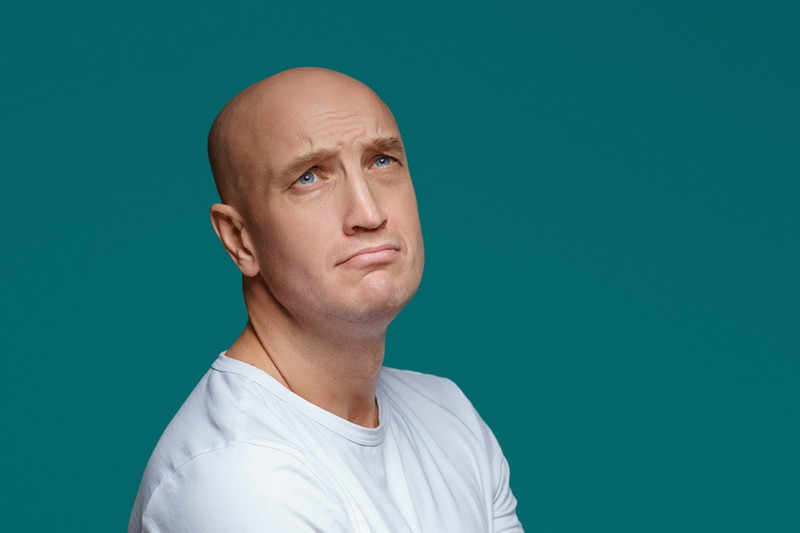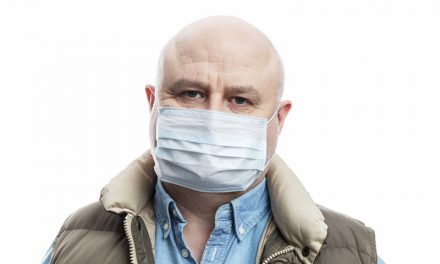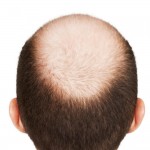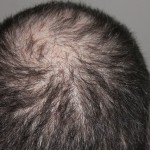Hair loss is a very relevant problem that can affect anyone of us. One day, you may notice that your hair is thinner than it used to be. But what are the causes of hair loss? What illnesses can cause it? Let’s find out.
What is hair loss?
Hair loss or Alopecia is the problem of millions of people around the world. It affects both women and men and leads to the loss of hair either on your scalp or the entire body. This condition is more common in older adults. Nevertheless, it may occur even in young children.
Most people usually lose up to one hundred hairs every day. This small loss is not noticeable, as we have thousands of hairs on our heads. Moreover, new hair will replace lost hair. However, sometimes it will not happen.
Temporal or permanent hair loss develops gradually with age, but it can happen abruptly. You cannot count how many hairs you lose per day. But if you noticed clumps of hair in your brush or a large amount of it in the drain, you may be losing too much hair.
Once you found the problem, you should discuss it with your doctor. He can determine its cause and prescribe the proper treatment that will prevent balding.
What causes hair loss?
The first thing you should ask your doctor to do is to determine the primary cause of the problem. Most often, you lose your hair due to male- or female-pattern baldness.
You may have this type of hair loss if most of your family members are bald. The reason for this is the presence of some sex hormones, which can trigger hereditary baldness.
There are many causes of hair loss, such as surgeries, major illnesses, or traumatic events. However, it may be a simple pause in the hair growth cycle. So it usually starts growing back, even without any treatment.
Another cause of temporal hair loss is hormonal changes and imbalances. There are many examples, like:
- childbirth;
- menopause;
- pregnancy;
- stopping the use of birth control pills.
Also, emotional, or physical shock often cause excessive hair loss. It can be:
- extreme weight loss;
- a death in the family;
- a high fever.
Some medications, like those used to treat the diseases listed below, can also cause hair loss. They include medicines for:
- high blood pressure;
- depression;
- cancer;
- heart problems;
- arthritis.
Also, many illnesses can cause temporal or permanent hair loss. They include:
- alopecia areata;
- thyroid disease;
- scalp infections.
Now, let’s learn more about these diseases.
Illnesses that cause hair loss
- Alopecia areata
Alopecia areata is a disease that causes your hair to fall out in unnoticeable small patches. However, they may become noticeable, connecting in large bald spots. The immune system begins to attack your hair follicles, trying to fight the disease. It results in temporal or permanent hair loss.
It usually affects your scalp, and sometimes eyelashes, eyebrows, and face, or other parts of your body. The hair loss can be sudden or can develop slowly.
The final stage of this illness, called Alopecia Universalis, leads to total hair loss. Moreover, it prevents your hair from growing back. The degree of hair loss and baldness is different from person to person, so it is impossible to predict it.
Unfortunately, there is no effective cure for alopecia areata. Still, many treatments can help prevent future hair loss and make the hair grow back. Also, many available resources will help the patients to cope with the stress.
Treatment
As was mentioned above, there is no medicine for alopecia areata. However, many treatments can slow down the hair loss process and help it grow back.
This illness is difficult to predict, so you will have to try many treatment plans to find the most effective and suitable for you. Nevertheless, in some cases, treatment doesn’t work, and it may still get worse.
- Thyroid disease
Some thyroid diseases, like hyperthyroidism or hypothyroidism, can often cause excessive hair loss. Usually, it involves your entire scalp, rather than some specific places. The appropriate treatment of these illnesses can prevent baldness and initiate regrowth. However, it often lasts for many months. Most often, only severe or prolonged thyroid diseases cause hair loss.
Hair loss is one of the symptoms of hyperthyroidism and hypothyroidism. It becomes noticeable several months after the beginning of the problems with the thyroid gland. The reason for it is the long hair cycle.
In these cases, you may begin losing your hair after starting the therapy. Doctors will blame the thyroid medication and may stop the treatment. However, it will only worsen hair loss.
Hair loss and anti-thyroid treatment
Propylthiouracil, carbimazole, and other anti-thyroid medicines sometimes initiate hair loss. It is almost impossible to determine whether you lose your hair due to these drugs or because of the effects of thyroid gland overactivity. However, in most cases, anti-thyroid treatment is not the primary cause of hair loss.
- Scalp infections
Several infection-related conditions and infectious agents can cause hair loss. The most common of them are ringworms.
Ringworms are a fungal infection that may occur on any part of the body. This illness causes bald patches when it develops on your scalp. Ringworms are the same type of fungal infection that often affects human nails.
This infection begins as a small pimple on your scalp. However, it expands in size over time and leaves bald patches on its way. Ringworm gets into your hair fibers and makes it brittle and thin. Affected areas become inflamed and itchy, causing many problems.
Treatment
Depending on the fungus type involved, you may need a different treatment plan. Several types of ringworms do not need treatment. Still, in most cases, you will have to use some anti-fungal medications, like griseofulvin, to get rid of them. It is an effective cure, which allows you to stop hair loss quickly and prevent ringworms’ appearance.
Conclusion
It is natural to lose some hair every day. But if you noticed that you are losing too much hair, you should see a doctor as soon as possible. It may be a sign of one of the illnesses described above. If not treated, they will lead to total baldness.
Your doctor can determine the cause and find the best treatment option for you. And in most cases, your hair will return to its healthy state.
© 2016-2020 by BaldTalk.com, an LiVenture.
All rights reserved. No part of this document may be reproduced or transmitted in any form or by any means,
electronic, mechanical, photocopying, recording, or otherwise, without prior written permission of LiVentures.












